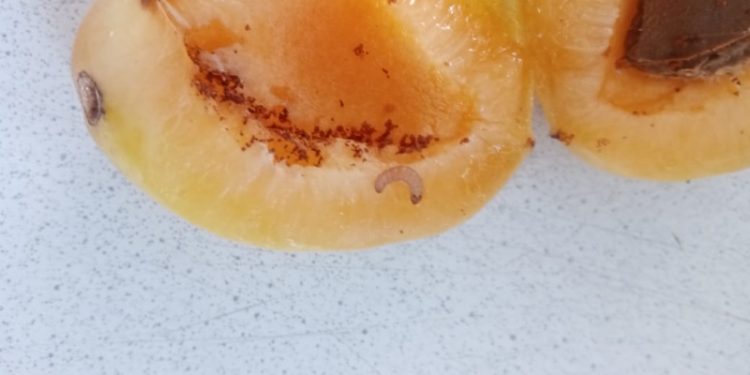#InfectedApricots #PeachFruitMoth #SanitaryTreatment #GassingMethod #PublicHealth #AgriculturalSafety
The Chelyabinsk region in the Southern Urals has received a shipment of 18.7 tons of infected apricots from Tajikistan. The consignment was found to be contaminated with peach fruit moth, a dangerous pest that causes damage to stone fruit crops. This article explores the development of the situation, highlighting the measures taken by the local authorities to ensure the safe sale of the apricots after decontamination.
The arrival of 18 tons of infected apricots from Tajikistan has raised concerns in the Chelyabinsk region of the Southern Urals. The shipment, weighing a total of 18.7 tons, was discovered to be infested with the peach fruit moth, a notorious pest that can cause significant damage to crops of stone fruit varieties, including apricots.
To address the issue, the regional branch of the Federal Service for Veterinary and Phytosanitary Surveillance (Rosselkhoznadzor) in the Chelyabinsk and Kurgan regions has taken decisive action. Officials have decided to subject the apricots to a sanitary treatment process known as gassing, which ensures the elimination of pests and pathogens without leaving harmful residues. This method involves exposing the fruits to controlled amounts of a specific gas, which effectively neutralizes the pests while maintaining the quality of the produce.
However, before the decontaminated apricots can be released for sale, additional examinations and tests will be conducted to ensure the complete eradication of any remaining pests or pathogens. The authorities have emphasized the importance of consumer safety and the need for thorough inspections to guarantee that the apricots are fit for consumption.
The arrival of infected apricots poses potential risks to both agricultural production and public health. If the contaminated fruits were allowed to reach the market without proper intervention, there could be a significant threat to local orchards and other stone fruit crops. The peach fruit moth can rapidly spread among susceptible plants, causing extensive damage and jeopardizing future harvests. Prompt action by the authorities in detecting and addressing the issue is crucial to prevent the potential infestation from spreading further.
In terms of public health, consuming infected fruits can pose risks, as pests and pathogens may adversely affect human health. The decision to subject the apricots to gassing and subsequent testing aims to mitigate these risks and ensure that only safe and uncontaminated produce reaches consumers.
The importation of 18 tons of infected apricots from Tajikistan to the Chelyabinsk region has necessitated immediate action by the regional branch of Rosselkhoznadzor. The implementation of the gassing method and subsequent testing procedures highlights the commitment to safeguarding agricultural production and public health. By taking proactive measures, the authorities aim to prevent the spread of the peach fruit moth and guarantee the safety of consumers. Regular monitoring and stringent control measures are essential to mitigate such risks in the future and maintain the integrity of food supply chains.































